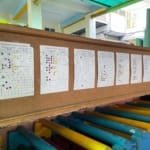World Mother Language Day was born out of a campaign to defend the rights of language in Bangladesh, which became an independent state in 1947 and consisted of two parts, East Pakistan, which was Bengali, and West Pakistan, which is today's Islamic Republic of Pakistan. In East Pakistan, Bengali is spoken, while in West Pakistan, four languages, mainly Urdu, are spoken.
As Pakistan made Urdu the only official language, this caused strong resentment in East Pakistan and led to a movement by the Bengali people to defend the right to speak the language. On February 21, 1952, many of the participants were arrested in Dhaka (now the capital of Bangladesh) and several demonstrators were killed in the clash; therefore, the international community called them "the first language martyrs who sacrificed their lives for a language in the history of mankind".
After the independence of Bangladesh, a monument was erected in honor of these martyrs and their sacrifice awakened the public to the importance of the Bengali language and culture. In 1956, the constitution of Pakistan made Bengali and Urdu official languages. In addition, at its 30th General Conference in 1999, UNESCO decided to designate 21 February as World Mother Language Day, with the aim of promoting linguistic and cultural diversity and multilingualism.





